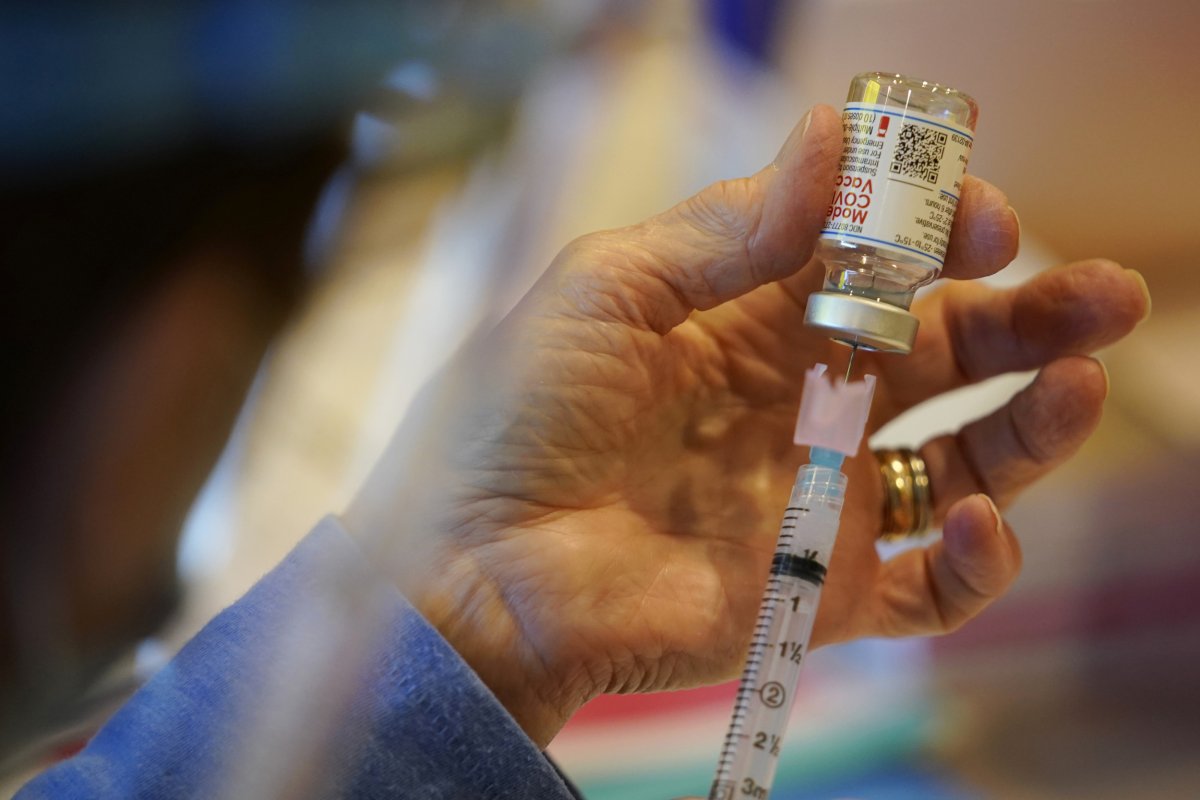According to a recent news release from Moderna, studies have shown that children ages 6 to 11 have strong immune responses to the company's kid-size COVID-19 vaccination, which offered young children half the normal dose given to adults with positive results.
Moderna reported Monday that then half-dose given of their vaccine is safe and appears to work in young children ages 6 to 11. Moderna has not gotten approval to offer its shot to children yet but is currently studying the results from lower doses on volunteers in hopes to expand vaccines to children soon.
Moderna tested two child-sized doses a month apart, and found the children developed virus-fighting antibodies similar to the levels vaccinated adults received from a full dose, Moderna said in a release.
Moderna hopes to join its rival, Pfizer, in offering vaccines to younger children soon. Pfizer's vaccination is already authorized for anyone 12 or older, but the company is currently seeking to expand distribution to younger children. Pfizer's kid-size vaccines are currently under evaluation by the Food and Drug Administration for use for children ages 5 to 11 and could be available as early as November.
The U.S. is striving to begin vaccinating children under 12 soon, and there seemed to be some positive results recently as Pfizer reported last week that the kid-size doses proved to be close to 91 percent effective at preventing symptomatic COVID-19 in children ages 5 to 11.
For more reporting from the Associated Press, see below.

The study involved 4,753 children ages 6 to 11 who got either the vaccine or dummy shots. Moderna said that like adults, the vaccinated youngsters had temporary side effects including fatigue, headache, fever and injection site pain.
The study was too small to spot any extremely rare side effects, such as heart inflammation that sometimes occurs after either the Moderna or Pfizer vaccines, mostly among young men.
Moderna released no further details and hasn't submitted its data to a scientific journal but said it plans to share the interim results with the FDA and global regulators soon. The study is still going on, and the company cannot calculate the vaccine's effectiveness in actually preventing infections in children unless there are sufficient COVID-19 cases to compare rates between vaccinated and unvaccinated participants.
The FDA hasn't yet ruled on the company's application to expand its vaccinations to 12- to 17-year-olds, although some countries have cleared Moderna's shots for adolescents.
FDA's advisers will weigh Pfizer's evidence in a public meeting Tuesday. If the agency authorizes Pfizer's kid shots, the Centers for Disease Control and Prevention the following week is set to recommend who should receive them.
Uncommon Knowledge
Newsweek is committed to challenging conventional wisdom and finding connections in the search for common ground.
Newsweek is committed to challenging conventional wisdom and finding connections in the search for common ground.
About the writer
To read how Newsweek uses AI as a newsroom tool, Click here.








